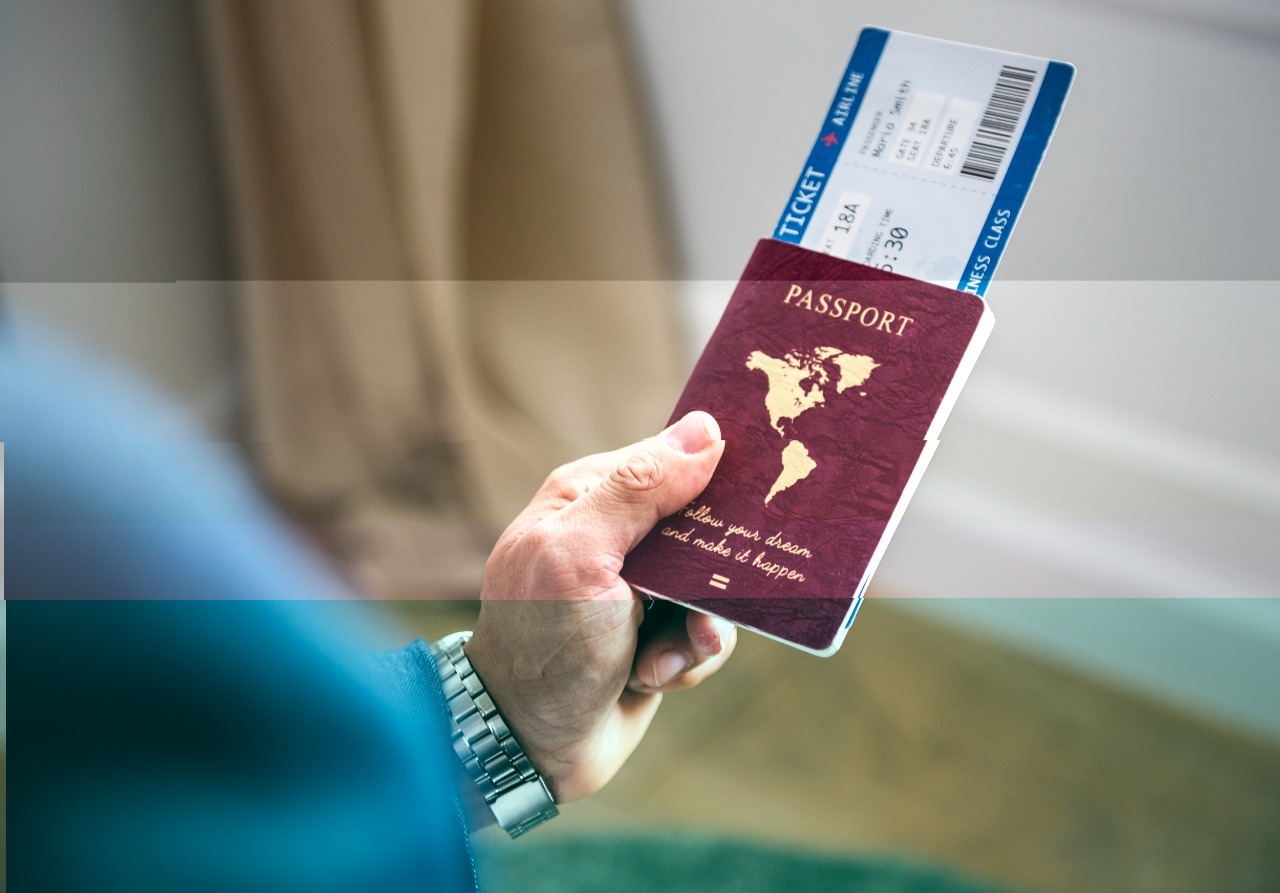According to the report https://www.cancilleria.gov.co/colombia/migracion/historia, over five decades, from 1970 to the present, Colombia has gone through three major migration periods:
- The first migration wave happened between 1970 and 1980. During this period, most Colombians migrated to the United States in search of better job and economic opportunities.
- The second migration wave occurred between 1980 and 1990. In this period, migration was mainly to Venezuela. The economic and political situation in Colombia worsened, which led many Colombians to seek refuge in this country.
- The third migration wave occurs from 1990 to the present. In this period, migration went mainly to Spain. The economic and political crisis in Colombia worsened even more, which led many Colombians to seek refuge in this country.
These movements have consisted mainly of Colombian citizens seeking better jobs, economic prospects and personal opportunities abroad. However, in recent times Colombia has faced a migratory phenomenon caused by the massive influx of thousands of Venezuelans seeking refuge within our borders, fleeing the socio-political turmoil in their homeland.
This unexpected event has left our country unprepared to handle the situation. According to the most recent data published by Migración Colombia for the year 2020 and early 2021, there were already approximately one million seven hundred forty-two thousand nine hundred twenty-seven (1,742,927) Venezuelans residing in this country. These immigrants are predominantly concentrated in the departments of La Guajira, Norte de Santander, Atlántico, Antioquia and the city of Bogotá.
The national government published https://n9.cl/r9ttp known as the Temporary Migrant Protection Statute. This was done to ensure that there is some order and security for those who have arrived in the country and have decided to settle here.
Despite the implementation of the statute and its registration process, the measures taken so far have failed to alleviate the social and economic discontent that has arisen. The current state of migration is complex because of its disorderly nature. This disorder has resulted in the rejection of the positive aspects of migration, while at the same time generating social conflicts that manifest themselves in many ways.
The Most Requested Migration Services in Colombia:
1. Passports, the gateway to the Colombian world:
This document is essential for any international travel, it also plays a crucial role in the immigration process. In Colombia, the issuance and renewal of passports are highly demanded services. You can process your passport online at https://n9.cl/96pf4
If you have a passport issued by States or territories on List A, B or C, or those listed as special visa exemption cases, you may enter, stay and leave Colombia without a visa for short stay activities (including business, leisure, tourism or cultural interest), as long as these activities do not generate payments for services, salary or wages in Colombia.
List A includes countries whose citizens may enter Colombia without a visa for any purpose and for any duration. List B includes countries whose citizens may enter Colombia without a visa for short stays. List C includes countries whose citizens may enter Colombia without a visa for short stays, but only for tourist purposes.
Visas, the key for different purposes:
Visitor's visa (type V): This visa is for those foreigners who wish to visit Colombia once or several times or stay temporarily in the country without settling permanently. This visa allows the holder to perform, among other activities: airport transit, tourism, business transactions, academic exchange and studies in arts or trades and postgraduate studies, medical treatment, administrative and/or judicial procedures, vessel or coastal platform crew member, participation in events, internships or practices, volunteering, audiovisual and/or digital production, journalistic coverage, temporary service provider, transfer of intra-corporate personnel within the framework of international instruments in force, official or commercial representative of foreign government, vacation-work program and courtesy.
Resident Visa (type R): This visa is for those foreigners who aspire to establish or fix their permanent domicile in Colombia for: having renounced Colombian nationality; being the parent of a Colombian national by birth; accumulated time of permanence; foreign direct investment.
Migrant visa (type M): This visa is for those foreigners who wish to enter or remain in the national territory with the intention of settling down, and do not meet the conditions to apply for a type "R" visa. Persons in the following conditions may apply for this visa: spouse or permanent partner of a Colombian national; parent or child of a Colombian national by adoption; migrant under the Mercosur Agreement; refugee; work; businessman; independent profession or activity; religious; primary, secondary, high school and undergraduate students; real estate investor; retiree or annuitant.
Work visa: This visa is for those foreigners who wish to work in Colombia. The requirements to obtain this visa vary according to the type of work and the duration of the labor contract.
Residency Visa: This visa is for those foreigners who wish to establish their residence in Colombia. The requirements to obtain this visa vary according to the personal situation of the applicant.
Student visa: This visa is for those foreigners who wish to study in Colombia. The requirements to obtain this visa vary according to the level of studies and the duration of the academic program. Passport and Visas: https://n9.cl/fwwr0
Nationalization/Citizenship, making Colombia a permanent home:
In Colombia, citizenship is not lost when acquiring another nationality, but Colombian citizens with another nationality must submit to Colombian laws while in the country, identifying themselves as Colombians.
Colombian nationality may be by birth or adoption. By birth, children of Colombian parents or those born abroad of Colombian parents who later become domiciled in Colombia are considered Colombian nationals. Nationality by adoption is sovereignly granted by the Colombian Government to foreigners through the Carta de Naturaleza, following requirements established by law.
Renunciation of Colombian nationality is a procedure where a national requests to renounce his/her citizenship, complying with legal requirements. The recovery of nationality allows a foreigner who was Colombian to recover his citizenship.
4. Family Reunification, weaving ties in Colombian lands:
Colombian institutions in charge of migration:
Also known as www.cancilleria.gov.co is in charge of formulating, guiding, executing and evaluating Colombia's migration policy, and granting authorizations for foreigners to enter the country, in coordination with the Administrative Department of Security. On the other hand, Migración Colombia Misión y Visión - MIGRACIÓN COLOMBIA (migracioncolombia.gov.co) is the entity in charge of exercising surveillance and migratory control of nationals and foreigners in the national territory.
Embassies/Consulates:
Colombian Embassies and Consulates abroad are in charge of granting Colombian visas and providing consular services to Colombian citizens abroad.
- National Police:
Finally, the National Police is in charge of guaranteeing the security and welfare of Colombian and foreign citizens in the national territory, including the protection of migrants' human rights.
Colombians abroad:
The study showed that the Colombian population abroad is approximately five million five hundred thousand (5,500,000), distributed mainly in America and Europe. The main countries that host this community are: Venezuela, the United States, Spain, Ecuador, Mexico, Chile and Canada, which together account for 91% of Colombians abroad.
Regarding the sociocultural conditions of Colombians abroad, the variable "technological literacy" indicates that 59% of the Colombian community is characterized by a low use of technological tools.
Common problems for Colombian migrants:
In terms of Colombian emigration, Australia is one of the main destinations for migrants and asylum seekers who arrive on its shores in search of a better life. However, many Colombian students wishing to study in this country have been victims of visa and false registration scams and many Colombians who migrate to Australia face the impossibility of renewing documents from abroad.
Colombian Student Migration to Australia, Challenges and Trends:
1. Growing Number and Areas of Study: The number of Colombian students choosing Australia as an educational destination has been increasing. This increase is attributed in part to the diversification of academic programs offered, ranging from science and technology to arts and humanities. The most popular areas of study include business, information technology, social sciences and applied sciences.
2. Lack of Pre-Travel Counseling: Despite the increase in student migration, many face challenges due to lack of pre-travel counseling. Some students may not be fully informed about visa requirements, the Australian education system, accommodation options and other crucial aspects. This lack of guidance can result in adjustment difficulties, and, in some cases, legal problems related to non-compliance with immigration regulations.
3. Registration and Visa Fraud: Another major challenge faced by Colombian students traveling to Australia is the presence of registration and visa fraud. Some unscrupulous individuals may take advantage of the lack of information and offer fraudulent services, such as false promises of admission to educational institutions or dubious assistance in the visa process. This not only affects the student's academic experience, but can also have significant legal consequences.
In summary, while the migration of Colombian students to Australia offers valuable educational opportunities, it is essential to address the associated challenges by ensuring that students are well informed and protected against potential exploitation and fraud.
The Colombian Foreign Ministry has not issued a specific pronouncement on Colombian migration to Australia. However, here are some relevant considerations:
The Embassy of Colombia in Australia is the official entity that represents Colombian interests in that country. You can find information on consular services, address and contact information on their website https://www.cancilleria.gov.co/embajada-colombia-australia
The Australian Embassy in Colombia also provides information about educational opportunities in Australia. you can visit their website for more details. if you are interested in emigrating to Australia from Colombia, you can also visit the website https://colombia.embassy.gov.au/ where they offer a complete guide to emigrate to Australia from Colombia in 2023. The guide includes information on the steps needed to emigrate, how to book a flight, how to choose a city and academic program, and much more.
Conclusions:
The Foreign Ministry report highlights three waves of migration since 1970, revealing patterns to the United States, Venezuela and Spain. While these movements have been largely driven by the search for opportunity, there have been social and economic challenges.
The massive influx of Venezuelans has generated unexpected challenges. Despite the Temporary Protection Statute, the measures implemented have not fully mitigated the social and economic impact, creating tensions and conflicts.
We explore key migration services in Colombia, from passport issuance to visas for different purposes. The significant increase of Colombian students in Australia is linked to educational quality and cultural diversity. However, lack of pre-travel counseling and registration and visa fraud present challenges that require attention.
We emphasize the importance of advice from migration specialists to avoid fraud and ensure safe migration. You can request a free consultation through A&V Grupo Jurídico Especializado https://www.avjuridicoespecializado.com/pagina/contacto?lang=es or email us at WhatsApp 3023360332.
We offer practical resources, such as links to the Colombian Foreign Ministry and Embassy in Australia, as well as a guide to migrating to Australia from Colombia. We highlight the importance of collaboration between governments and migration agencies to improve the migrant experience. As Colombia faces diverse migration challenges, from internal migration to the arrival of Venezuelans, it is essential to address them with coordinated approaches and comprehensive solutions.
This blog seeks to inform and raise awareness about the complexity of the migration phenomenon in Colombia and provide valuable resources for those considering migration. Share this valuable research we have done for you on migration in Colombia and if you or someone close to you needs specialized legal advice on this topic, request a free consultation through https://www.avjuridicoespecializado.com/pagina/contacto?lang=es or write to us at WhatsApp 3023360332.
Latest posts

Prima de Servicios: El Compromiso Legal que Impacta el Bolsillo de los Trabajadores

Navigating the Borders: Migratory Phenomenon in Colombia

Significant Changes and Advances in Colombian Labor Legislation: A Brief Critique of Laws That Are in Force but Are Dead Letter

Desafíos y Perspectivas de la Situación Laboral en Colombia: Problemas, Soluciones y Caminos a Seguir

Derecho al trabajo y la protección de los trabajadores: Lecciones de la Suprema Corte de Justicia y el Ministerio del Trabajo en Colombia